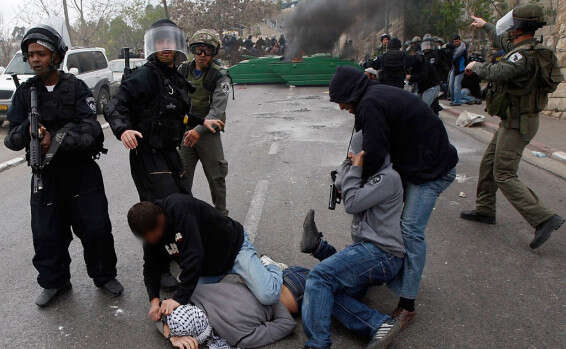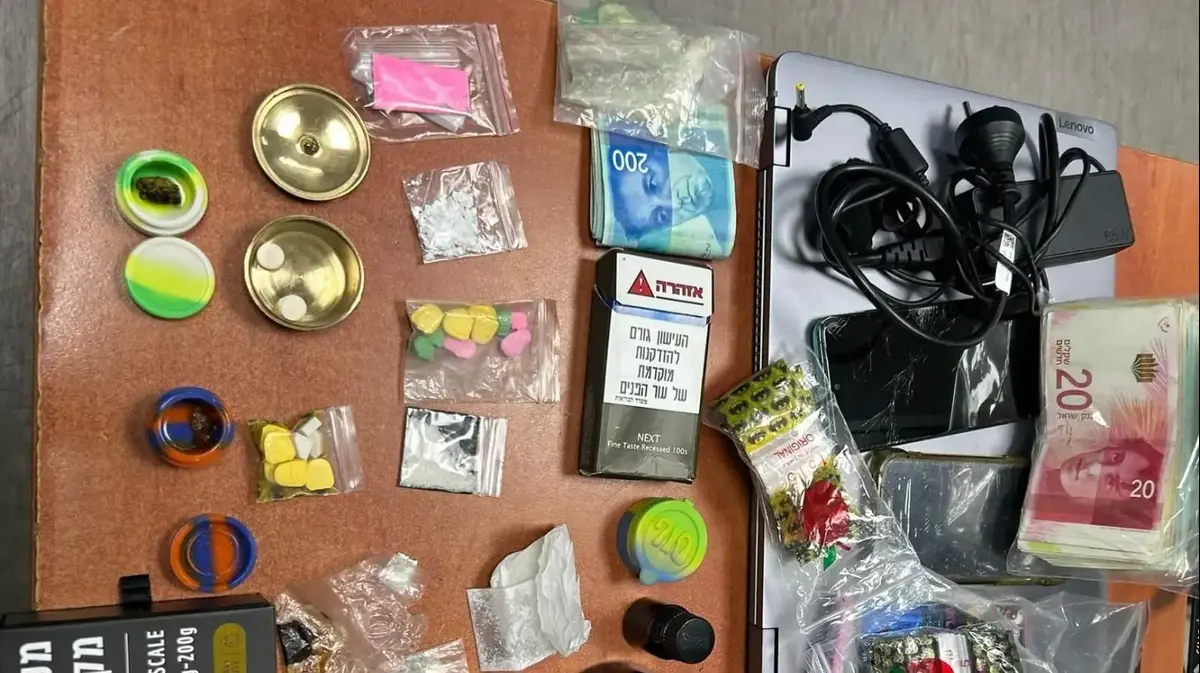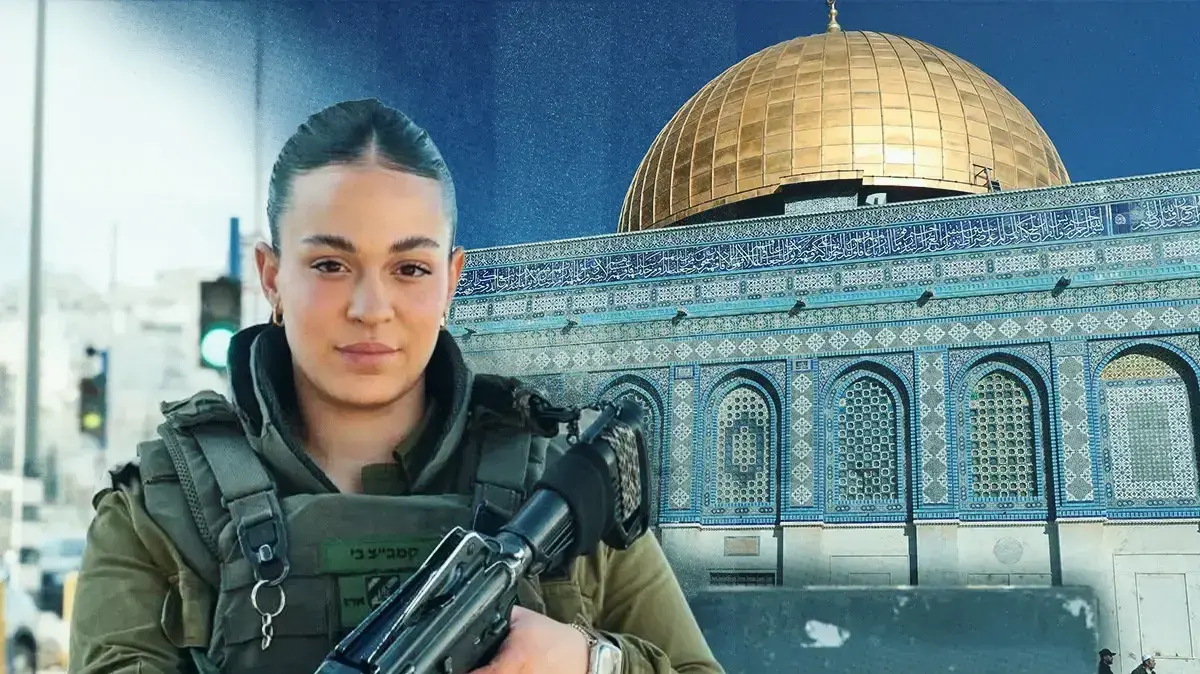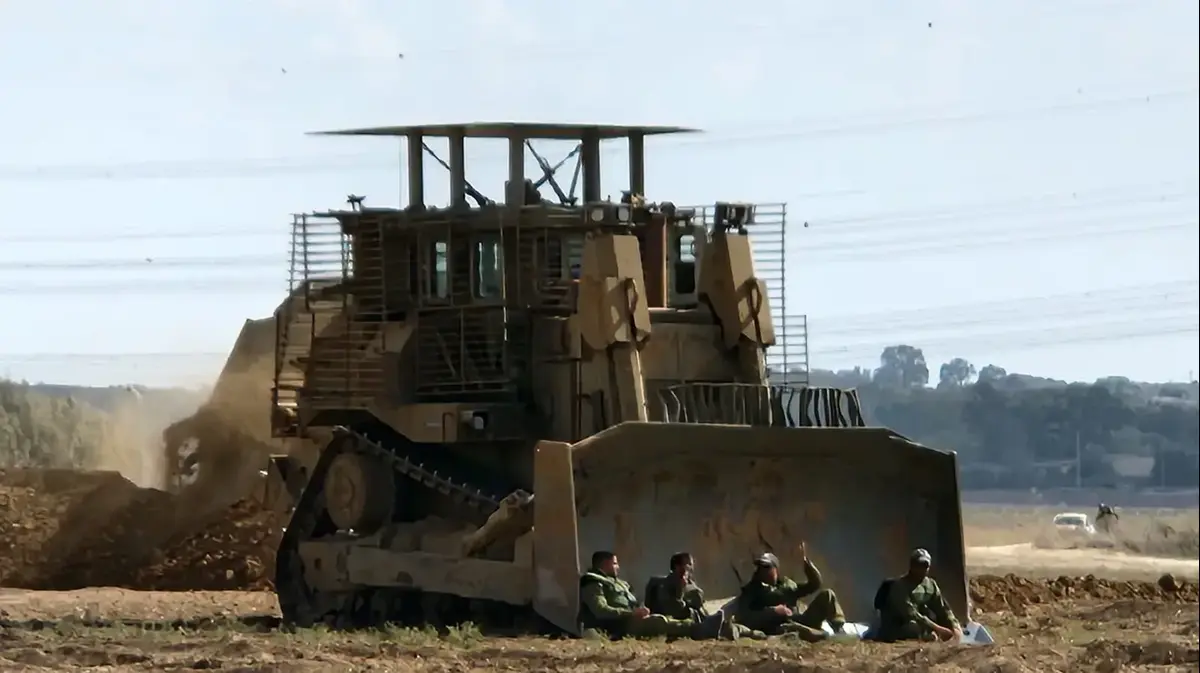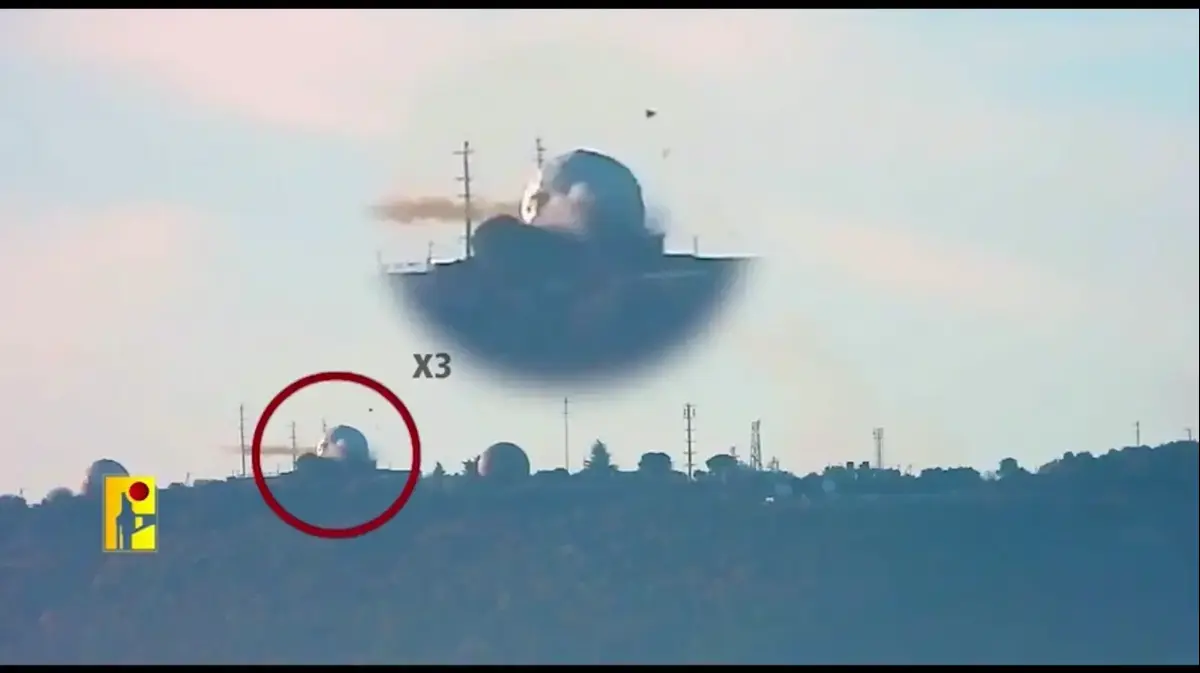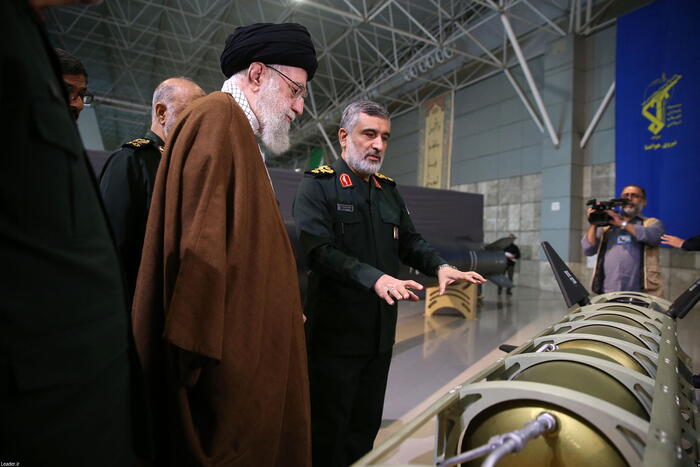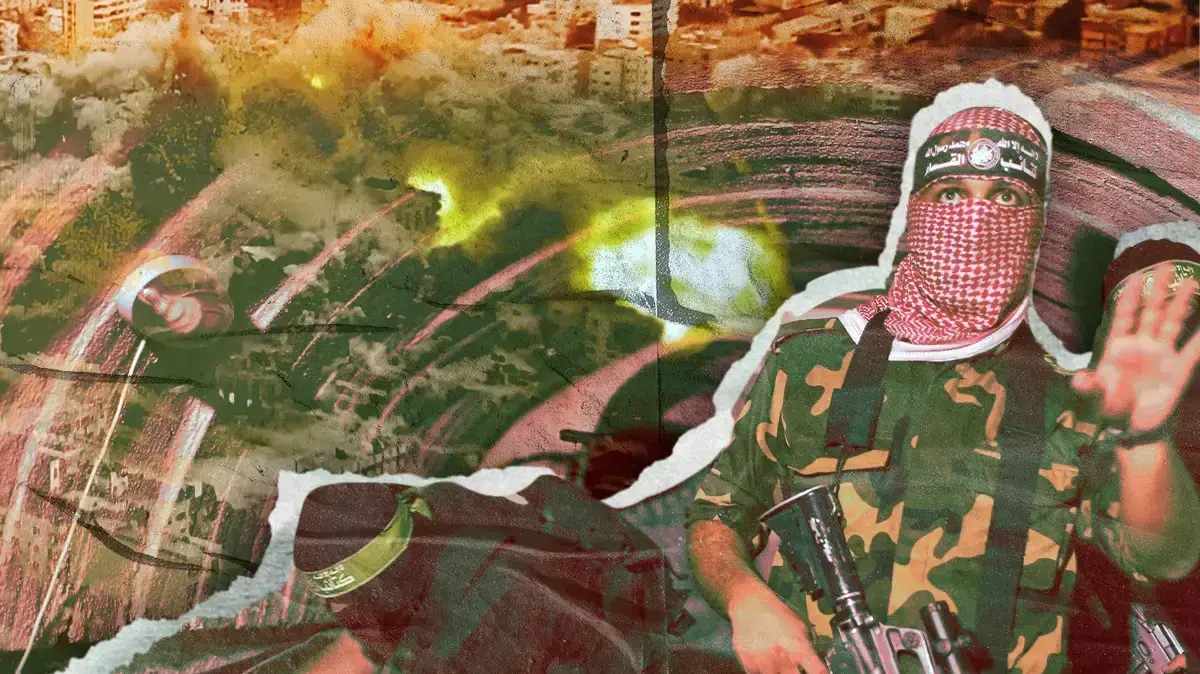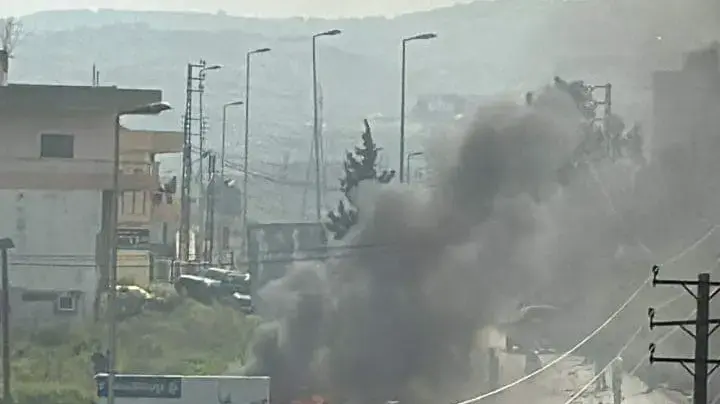"It's a type of theater actor with a crazy level of risk," describes a former chief of staff at what is required from an undercover • Cherry reserve officer: "Fauda sharpens enemy vigilance"
Undercover in action // Photo: Reuters
Somewhere in the 1980s, in one of the first operations of a cherry unit, three undercover officers were required to capture a squad of terrorists whose members used to meet every Friday at a local barbershop in one of the villages. The camouflaged fighters replaced the seller at the booth next to the barber shop, dressed up as an elderly woman who used to sit nearby, and a passerby who entered the haircut and then waited for the squad members to arrive. When they arrived, the undercover officers exposed themselves and with the help of additional forces, undercover and visible, the terrorists were eliminated.
Tonight (Thursday) will air in season three of the series Fouda, which describes the plight of a undercover unit on its warriors and warriors. For most viewers, the storytelling dances add up to a well-acted action drama, but there are those who have experienced the same experiences on their flesh and for them it is life itself.
More on:
- The King of the Dead: The undercover commander takes down the kafia
- Leaving the Shadows: First glimpse of what is happening in the Gideon undercover unit
- Documentation: Undercover police arrest a suspect in the heart of the village
"The first season wedding scene in Pauda describes almost one to one similar experience that I went through in one of the villages in Judea and Samaria," tells Israel Today "Oren Or-Biton, a former war fighter and commander in the US - the Border Police's undercover intifada at the end of the years. The 80s and early 90s. "Me and another fighter got together at the wedding to capture wanted ones. During the event, we allowed more fighters to enter the wedding and feast with all the music and drumming, and then we closed the structure and gave the signal to the visible forces to come into action."
Undercover in action // Photo: EPA
There was a big fuss there, says Or-Biton, who wrote about his experiences as an undercover book called an "explosive barrel." "One of the wanted men, who tried to flee, jumped from the fourth floor and crashed completely. There was a lot of noise and it took a few minutes for the forces to come in to arrest the wanted, confiscate the weapons and, of course, extract the undercover forces."
At another event, matters were less under the control of Oren and his friends. "We once scoured a village on a vehicle. A supposedly routine operation that should not end in exposing the force, and then we accidentally entered the alley and there we found a dead end. Instead, there was a group of young people who noticed that we were trying to turn around and didn't find the place and realized we were foreigners. Rods and stones began to shatter the car windshields. One of our fighters was wounded with an ax in the head and we had to 'burn ourselves' and open fire. "
"Undercover needs chameleon capabilities"
Apart from operational abilities and skills, and of course stamina and combat, one must make sure to have a special set of skills not required by any fighter. "Most of the operational capabilities are acquired," says Yair Merton, who served about two decades ago as head of the Lottery (warfare and terrorism) division and was annexed in some of his military service to undercover units, noting that "if you don't have basic elements like calmness, patience, trust in the system And with your friends, playing ability and improvisation in both routine and stress and stress situations, you have no chance of getting caught up. " It can be thrown anywhere, whether it is Ramallah, Jenin or Gaza, and it will already work out and integrate without being burned. "
These features, Or-Biton adds, also need to connect the nature of the area in which the interferer operates. "In every route the behavior is different. There are places where a tourist is looking for a camera, sunglasses and even a cross with a pendant. In other places you enter the image of a student going to school, or an adult."
Oren indicates that his favorite costume was a woman's. "I would walk with a half and carry a basket full of fruit and vegetables underneath which muskets weapons. I went half bending and so I reached the destination. On the Arab street you do not usually look at a woman's face, so think your wanted one sits in the cafe and sees an elderly woman next to him and not a young man he does not know and continues to drink. His coffee. Then you get to it and at zero range you expose yourself and pull out a weapon. If he gives in it's easier, but if he resists and pulls a gun, then a gunfight develops. "
"I would walk with halves and carry a basket full of fruit and vegetables underneath which is thrown arms" // Photo: Reuters
It is customary to think that an undercover world in Israel was born during the 1980s as a product of IDF activity and security forces in Judea and Samaria. However, MK and Colonel Motti Yogev, who served as a commander of a platoon in a General Staff patrol and as a battalion commander and a brigade that operated undercover forces, says that Such actions have evolved much earlier. "Even when I was a soldier in the Shaked patrol in the 1970s, a group of Arab-speaking soldiers retired from us for the purpose of intensive operational activity, even before the establishment of the undercover units. Incidentally, undercover operations also occurred during the Palmach and the defense."
He said such activities are of great operational and intelligence importance. "This way of working gives you friction with the population and accessibility that greatly helps achieve the goals and objectives. As a commander in Shanor, we recruited the first cherries. As a battalion commander, I trained the soldiers who assisted in intervening and conducted tours in places the IDF did not reach until then."
"The problem begins when there is excess self-confidence"
Merton, who has served as a combat instructor in the Fauda series since it went on the air, tries to describe in his experience the feelings that accompany him before and during the secret activity. "As with anything, at first you are stressed out and in the kind of anxiety and paranoia that everyone is looking at you and you and you are at the center of things and another moment you are burned out. Therefore, exposure to the area becomes progressive and during this time they become accustomed to the situation, realize that the breast is not so bad and begin to gain confidence. Excess self-confidence. The units work very hard not to fall into these places of complacency and excessive self-confidence. You are always reminded that everything, including everything, can happen. "
Yogev agrees and emphasizes that in these units complacency is a crude word. "There is a constant vigilance. With the training and activities the sense of security is rising, but be very careful not to reach a state of complacency." Or-Biton also joins the statement, stating emphatically that "these units are not complacent. We practice so many situations and scenarios that complacency is from us on and on."
"Feuda" certainly brought awareness to the undercover world, but for R., a cherry unit reserve officer, the visibility and high profile of the series, along with other series dealing with the undercover world, is causing a problem in the field. "We will always be ready and know how to deal with any situation," he tells Israel Today, "but such series only raise awareness and sharpen alertness on the other side."
He, too, is trying to describe what the fighters in the field are going through. "The vigilance and the high adrenaline are expressed mainly on the way to the destination. During this time, above all the exercises you have undergone, you are still doing your own simulations and cases and reactions. You are practicing at the top. But once you start the activity, everything is released and you are working on an automatic."
"The whole village was on its feet" // Photo: AFP
"These actions have a price"
Another issue that engages fighters in the field is the need to make changes while on the move and without warning. "One of the most notable things about service in cherry," says R., "is the sharp transition from zero to a hundred. From a pastoral situation, you can in one second switch to a shooting and shooting mode. From a situation where you play volleyball in the unit you have to be ready with equipment in a few minutes and already be on the way to a terrorist who is defined as a ticking bomb. "
Merton tells of a case that is somewhat reminiscent of what happened in Khan Yunis about a year ago. "Once, a police force mounted in a Palestinian vehicle in the middle of the night gathered for intelligence gathering on demand. Everything went well and the team quietly entered the area, but just before the exhaust target suddenly broke and the lug simply dragged to the floor. Gears came out and there was a loud noise that woke everyone up The village was considered hostile. The force got stuck in some corner and had to be unloaded quickly. The vehicle had a lot of military equipment that should not be left behind, so the fighters began to move toward the first visible IDF spot near the village. Think of a troop of undercover men, dressed in civilian clothes, running with weapons toward a checkpoint of soldiers and all that in the background of the entire village on their feet and stones being thrown. In short - Pauda. "
Alongside that, and against the hair-chilling stories, it is important for him to emphasize that "this is not the Wild West. Nobody wants Rambo in the unit. Everything is very neat and structured, although there is certainly room for improvisational and creative capabilities. The ultimate goal is to keep the state safe. Israel and the other side make sure everyone comes home safely.
"A theater actor with a crazy risk level"
Or-Biton, currently serving as chairman of the Trauma4Good Association, which helps post-traumatized victims of the security and rescue personnel. He points out that a spotlight is also needed to address the issue of mental harm, which is not always easy to identify. It is important to understand that there are those who suffer from this activity, as well as other operational activities, from post-trauma. Although it is not possible to resolve a post-traumatic injury, you can certainly deal with it and live alongside it. "
In conclusion, when he is required to summarize in a few words the image of the undercover, he says. "This is a type of theater actor with a crazy level of risk. To see the enemy in the white eyes and to know that this terrorist moment that threatens the State of Israel will no longer be alive, gives a great sense of satisfaction and feeling that you are the minimum of God's vice. Another warfare. "

